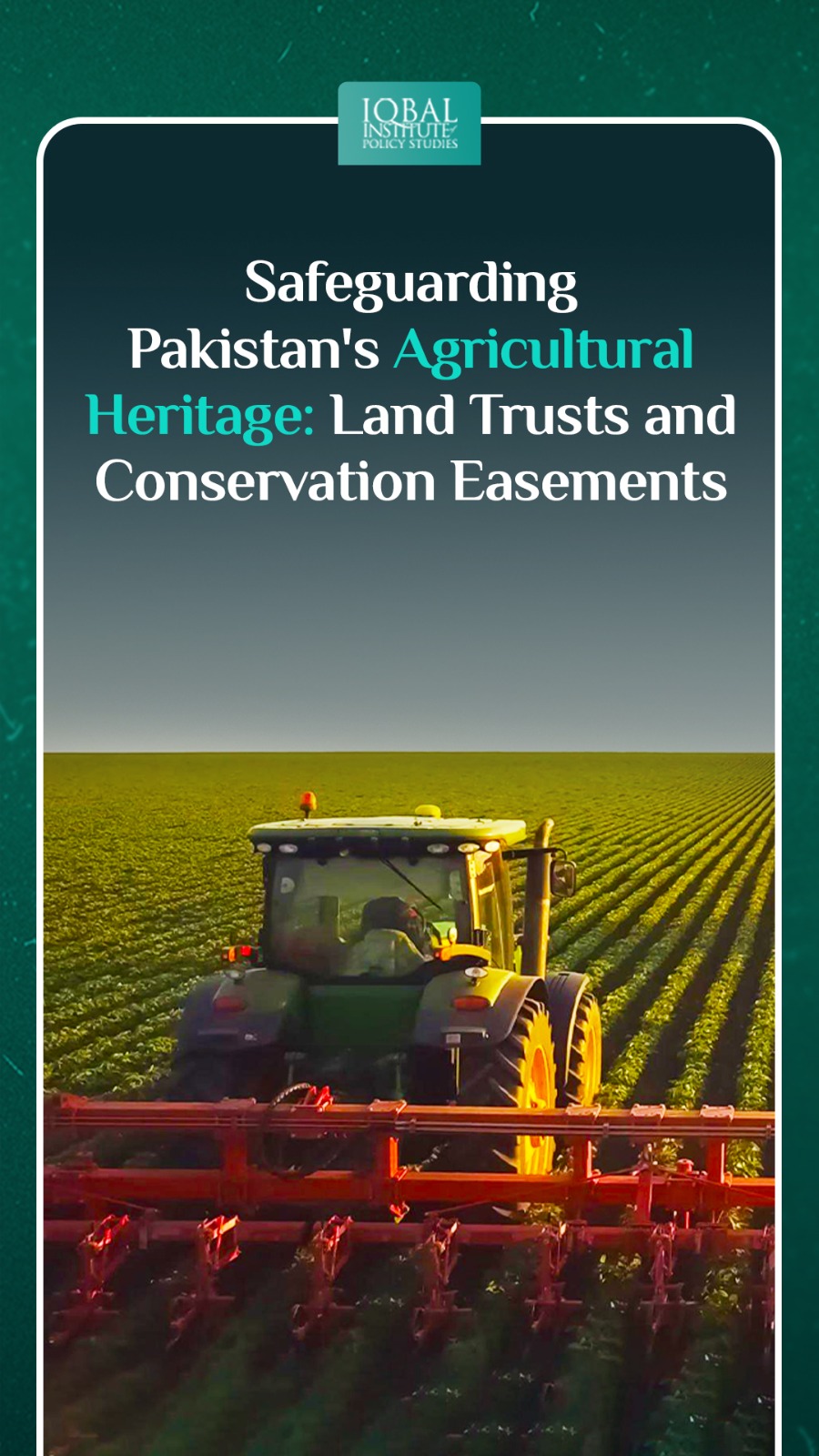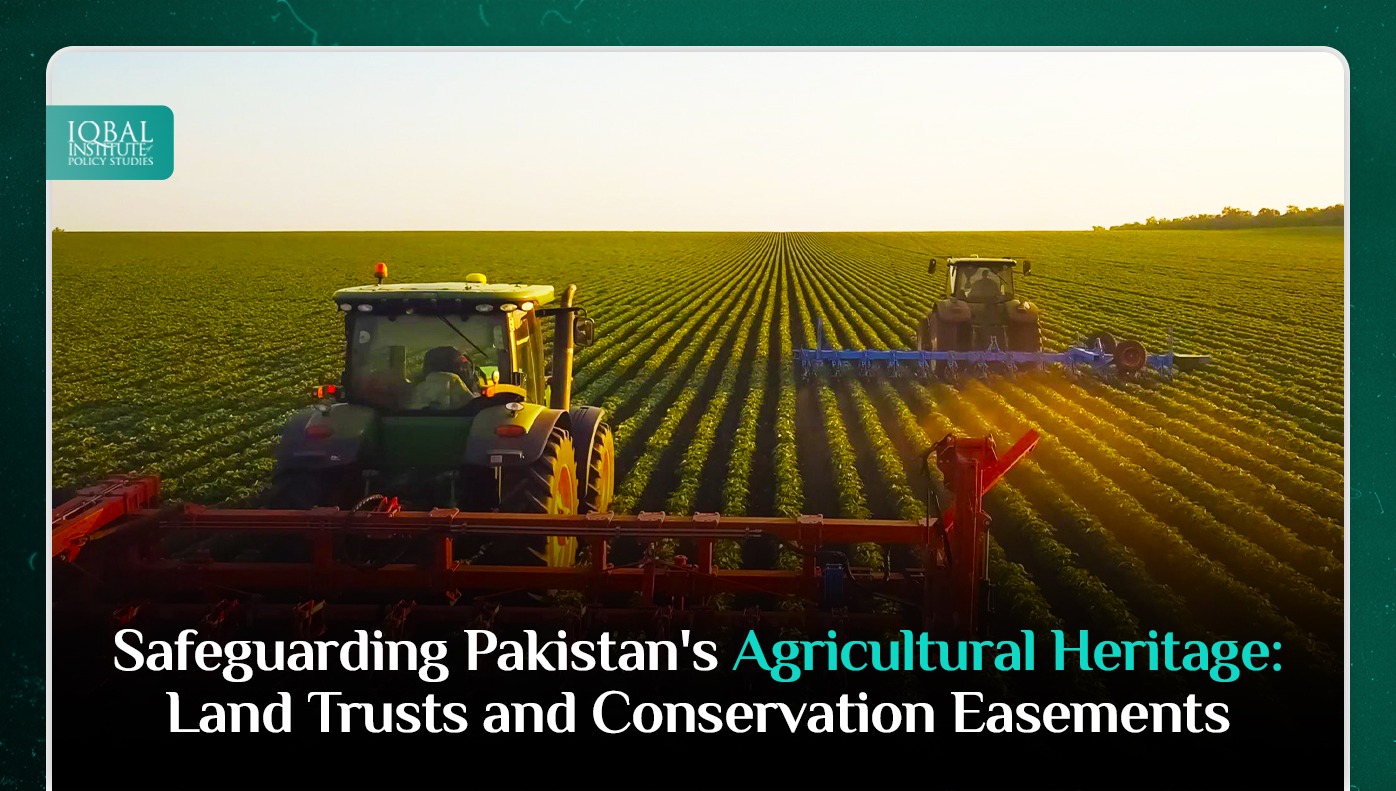Pakistan’s diverse landscapes, from fertile plains to picturesque mountains, are home to a rich agricultural tradition that has sustained communities for generations. However, this heritage faces growing threats from urbanization, industrialization, and unchecked development. To counteract these challenges and protect the country’s valuable agricultural land, the use of land trusts and conservation easements has emerged as a vital strategy. In this extended blog, we will explore the critical role these mechanisms play in Pakistan, their impact on preserving agricultural land, and how they shape the country’s real estate landscape.
Land Trusts and Conservation Easements: A Primer
Before diving into their application in Pakistan, let’s gain a deeper understanding of what land trusts and conservation easements entail:
– Land Trusts: These are nonprofit organizations dedicated to conserving land for the long term. They often acquire, hold, and manage land, which may include agricultural land, to protect its natural resources and prevent its conversion to other uses.
– Conservation Easements: A conservation easement is a legally binding agreement between a landowner and a qualified organization (e.g., a land trust or government agency). This agreement restricts certain uses of the land to protect its conservation values, such as agricultural use, wildlife habitat, scenic beauty, or historic significance, while allowing the landowner to retain ownership.
The Role of Land Trusts and Conservation Easements in Pakistan
Preserving Agricultural Land: One of the primary roles of land trusts and conservation easements in Pakistan is to safeguard agricultural land from encroachment by urban development. Agricultural lands are not only essential for ensuring food security but also provide livelihoods for millions of Pakistanis. By acquiring these lands or securing easements, these organizations ensure their continued use for farming, which is crucial for the country’s sustainability.
Conserving Natural Resources: Beyond agriculture, conservation easements protect a wide range of natural resources, including wetlands, forests, water bodies, and critical wildlife habitats. These resources contribute to ecological balance, enhance biodiversity, and provide essential ecosystem services, which are crucial for the well-being of both rural and urban communities.
Promoting Sustainable Farming Practices: Land trusts often work in partnership with farmers, helping them implement sustainable and environmentally friendly farming practices. This collaboration ensures that agricultural land remains productive while minimizing negative environmental impacts, such as soil erosion and chemical pollution.
Impact on Real Estate Development
Now, let’s explore how land trusts and conservation easements impact real estate development in Pakistan:
Balancing Development: Conservation easements provide a valuable mechanism to balance real estate development with the preservation of open spaces and farmland. This helps prevent haphazard urban sprawl and ensures that development occurs in a more planned and sustainable manner.
Property Values: Real estate located in proximity to conserved agricultural land or natural areas often experiences increased property values. The scenic beauty, clean air, and recreational opportunities provided by these conserved areas can make adjacent properties more attractive to buyers, leading to higher property values.
Economic Benefits: Conservation and agricultural preservation can have positive economic impacts. Sustainable agriculture generates income and employment opportunities in rural areas, contributing to the economic development of these regions. Additionally, conserved natural areas can attract eco-tourism, which brings in revenue and creates job opportunities.
Community Well-being: The presence of conserved lands and green spaces enhances the quality of life for residents in nearby urban and suburban areas. Access to nature and recreational opportunities promotes physical and mental well-being, contributing to healthier and happier communities.
Challenges and Considerations
While land trusts and conservation easements offer numerous benefits, their implementation in Pakistan faces some challenges and considerations:
Legal Framework: Pakistan may need to develop a more robust legal framework to support conservation easements, making it easier for landowners to participate and ensuring the long-term enforcement of easements.
Awareness and Education: Public awareness and education on the importance of conservation and the benefits of easements need to be increased to encourage landowners to participate willingly.
Funding: Securing funding for land acquisition and easement enforcement can be a significant hurdle for land trusts. Developing financial mechanisms and partnerships with government agencies and philanthropic organizations can help overcome this challenge.
Conclusion
Land trusts and conservation easements play a pivotal role in preserving Pakistan’s agricultural land and natural resources while positively influencing real estate development. They provide a pathway to balance development with conservation, enhance property values, stimulate local economies, and improve community well-being. As Pakistan faces increasing urbanization and the need for sustainable land use, the continued growth and support of these conservation efforts are crucial for the country’s future prosperity and environmental resilience. By valuing and protecting its agricultural heritage, Pakistan can ensure a sustainable and bountiful future for generations to come.
This article is written by Maha Nazami. Maha is a research analyst at the Iqbal Institute of Policy Studies (IIPS).



Leave a Reply